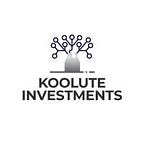SUSTAINABLE REAL ESTATE DEVELOPMENT USING WEB3 TECHNOLOGY
Modern urban centers are moving toward smart and efficient design as cities worldwide make a concerted effort to streamline urban planning. Our CEO Cannelle Maricaux sat down with the Khaleej Times to discuss how Koolute Investments is bringing these concepts to underdeveloped countries by revolutionizing the real estate industry in the region. The following is from that conversation.
Headquartered in Dubai, Koolute Investments uses Web3 and blockchain technology to modernize real estate in Senegal. Operating as a property portal and a technology provider, Koolute is powered by a blockchain solution where verified property data incentivizes investment and real estate development in Senegal.
By streamlining accountability and transparency across the property ownership registry, Koolute is setting the sector up for long-term and sustainable development. By providing a technological solution to verify property ownership, Koolute increases efficiency, adds security, reduces fraud, and improves stakeholder participation.
BUILDING SMART INFRASTRUCTURES
Cannelle Maricaux, founder and CEO of Koolute Investments, draws inspiration from how Dubai has revolutionized its property data processes to become a truly modern city with smart design.
“The UAE has one of the most advanced blockchain-backed property frameworks. I’m taking my learnings from here and applying them to Senegal,” she says. “Everyone already knows that blockchain-based applications can drive radical and disruptive innovations. However, blockchain use, especially across property assets, is still limited. By building blockchain-backed infrastructures in Senegal and West Africa, we can establish sustainable, long-term benefit’s that bring value to all stakeholders.”
Cannelle feels that there’s a stigma of corruption and a lack of trust associated with Africa that keeps foreign investors and even the Senegalese diaspora from investing in the country.
“That’s why, in addition to democratizing property information and data, we’re using the Koolute name to bring efficiency, transparency, and security to property systems and infrastructures. It’s the only way to develop collaborative and interactive platforms that allow for real, meaningful, and sustainable growth in the long run,” she adds.
Sustainability At Its Heart
Operating at the front end as a traditional real estate portal with listings and information, Koolute’s real vision extends beyond using technology to verify, link, buy and sell property.
“The UN’s sustainable development goals require, at minimum, property infrastructures built on trust, transparency, and accountability for better governance. Wider blockchain use in property can create neutral, non-hierarchical, accessible, non-manipulable, and secure information,” says Cannelle. “Through Koolute, we’re making this data accessible to all stakeholders to facilitate systemized urban development. And when we digitalize processes to make them tamperproof, we enable all stakeholders to operate more efficiently, reduce waste, cut costs, and optimize workflows at every touch point,” adds Cannelle.
Cannelle believes that blockchain-backed property management increases accessibility and transparency at a time when there is increased pressure on public administrations to make services more open and secure.
“It’s a new way to operate within the property ecosystem,” she says. “Because Blockchain replaces outdated paper documentation vulnerable to loss, fraud, and mismanagement with secure digital assets tracked on an immutable ledger, data can operate as a shared source of truth between multiple parties and organizations.”
Cannelle believes that this kind of authentic information is essential to a country’s long-term economic growth and development. She envisages a future where transparency and accountability through the Koolute name are the benchmarks of good operations in Senegal and the wider Francophone Africa.
